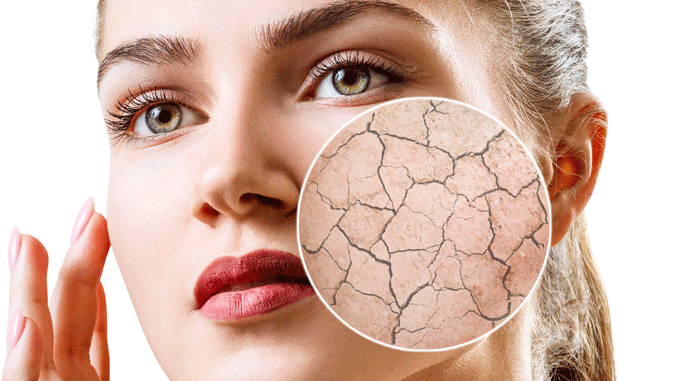
Does dry skin have you down? In winter, dehydrated skin, or xerosis, is the most common skin complaint. That’s because cold air holds less moisture than warm air and humidity levels are lower in winter months. Because San Joaquin County already has a drier climate, this can quickly lead to cutaneous xerosis, dry skin that can become itchy and uncomfortable. “As we age, the skin naturally also becomes drier, thus xerosis is even more prevalent in the elderly population,” says Christian Jones, MD, FAAD, a dermatologist in Manteca with Golden State Dermatology.
The best course of action is to apply a heavy cream moisturizer such as Cerave, Cetaphil, or Eucerin, liberally and often. Dr. Jones suggest dousing your body in the stuff after a shower to help trap the moisture in. It’s also important to avoid scratching as this can lead to rashes called eczemas that will only worsen the more you claw at them. “Eczemas itch more, which can result in more scratching, more inflammation, and a vicious cycle resulting in widespread itchy eczema with difficulty sleeping and functioning,” Dr. Jones says. In addition to the elderly population, those with a predisposition to sensitive skin or atopic dermatitis are also at increased risk.
Remind yourself to use moisturizer by making it easily accessible. Keep tubs in places that are easy to reach, or that will act as a reminder to use it, such as in the shower, on your nightstand, or on a sink so you can moisturize after washing—which we’re all doing a lot lately. It can also help to create some humidity in your space. While the air outside is dry, humidifiers for your home, bedroom, and office are an inexpensive way to treat dry skin.
“Unfortunately, dry skin eczemas can explode due to the vicious itch-scratch-itch cycle,” Dr. Jones says. And your arms and legs are the most susceptible spots for these outbreaks. “If aggressive use of moisturizing creams fails to help, a dermatology consultation is recommended to prescribe stronger topical medications and rule out other causes of itchy, red skin.” You may be tempted to reach for an over-the-counter cortisone cream, but Dr. Jones warns those are typically too weak to control an outbreak. If you break the skin, you may even need an oral antibiotic to stave off infection. Dr. Jones smiles, “When in doubt, see a dermatologist! We make rash decisions all day long.”
Seek advice:
Golden State Dermatology
1542-A N. Tracy Blvd., Tracy
(209) 836-2220
200 Cottage Ave., Ste. 201, Manteca
(209) 924-4086
GoldenStateDermatology.com

